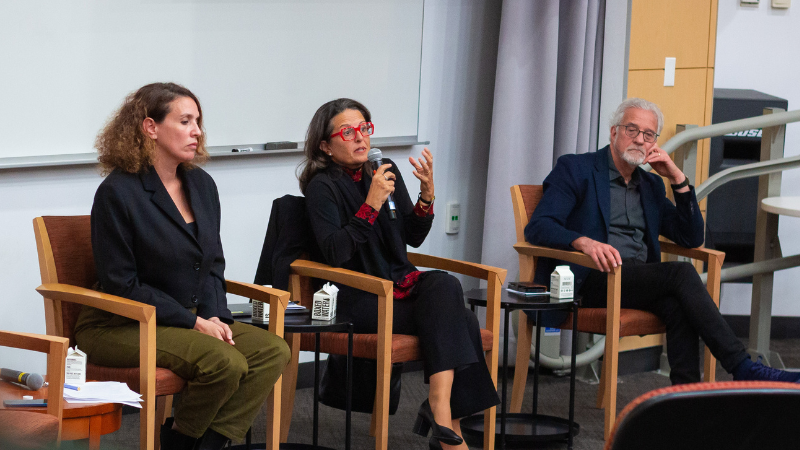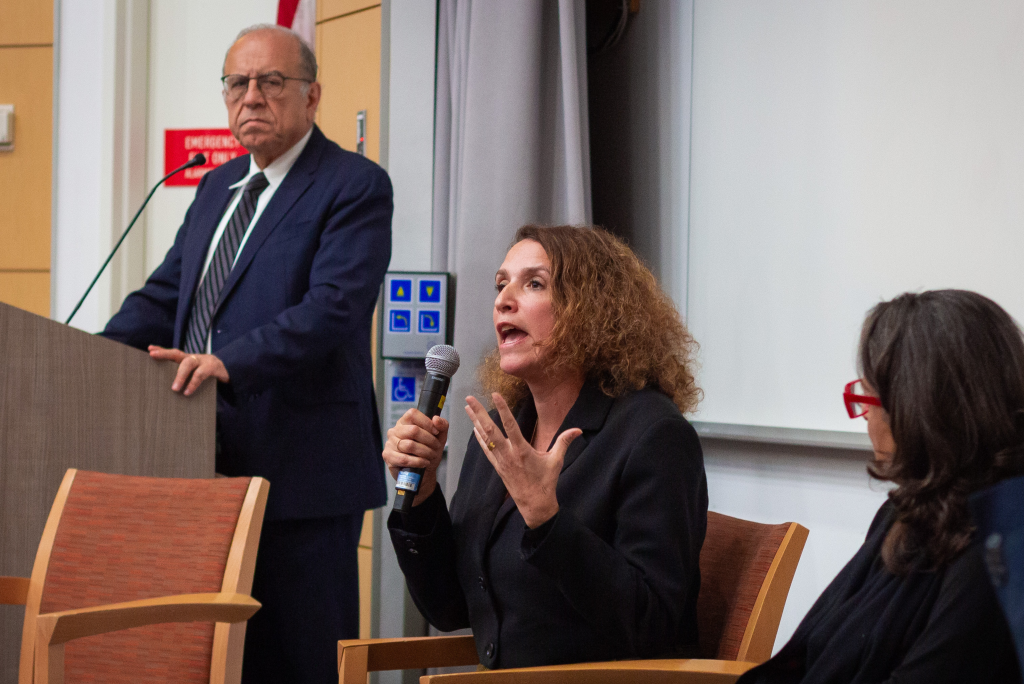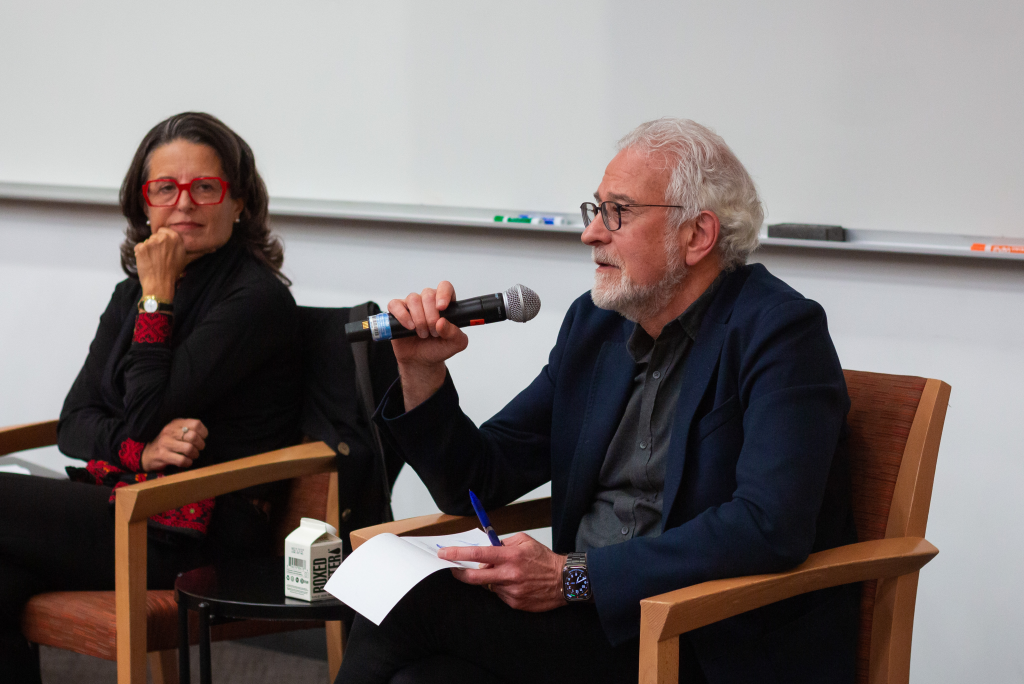
One Year Since October 7, One Year of War
On October 7, 2024, the Fares Center hosted Professors Omer Bartov, Leila Farsakh, and Yael Sternhell for a pivotal discussion on the lasting impact of the October 7 attacks and the ensuing genocide in Gaza. The conversation explored the social, political, and humanitarian dimensions, with a forward-looking focus on what comes next.
Professor Bartov, Samuel Pisar Professor of Holocaust and Genocide Studies at Brown University, shared reflections on the humanitarian crisis in Gaza, questioning Israel’s justification of its policies as “self-defense.” Regarding concerns of genocide and legal accountability, Professor Bartov cautioned that even a “legal” war can cross into illegal territory if it involves intent to exterminate a group. He criticized the United States for its complicity in shielding Israel from accountability, noting that such actions limit the impact of international bodies like the International Criminal Court (ICC) and the International Court of Justice (ICJ). Professor Bartov concluded his remarks by outlining the geopolitical and long-term implications of October 7, noting that the attacks shattered Israel’s image of security, spurring its leaders to reassert dominance in the region. He noted that Israel’s policies now resemble an apartheid system that could ultimately collapse.



Professor Farsakh, Professor of Political Science at University of Massachusetts Boston, provided commentary on the sociopolitical and economic toll of the past year on Palestinians. She outlined the unprecedented scale of displacement and destruction, with over 90,000 children orphaned and more than 70,000 tons of bombs dropped on Gaza. She also discussed historical shifts in Israeli policy, asserting that Israel’s focus has moved from ethnic cleansing to active elimination of Palestinians. Professor Farsakh emphasized that increased settlements and checkpoints have fragmented Palestinian territories, creating an apartheid-like structure that entrenches Palestinian marginalization. She closed by asserting that a two-state solution is no longer feasible given Israel’s policies. Instead, she argued for a single state based on equality and justice, contending that a nation-state model often leads to exclusionary nationalism and supports authoritarianism.
Professor Sternhell, Associate Professor of History and American Studies at Tel Aviv University, shared an analysis of internal societal shifts in Israel following October 7, noting that the event intensified far-right nationalism and militarism. She discussed how internal media coverage of Gaza largely omits images of human suffering, an act that desensitizes the public and fosters a “cocktail of vilification and ignorance.” Professor Sternhell observed that Prime Minister Netanyahu has used the crisis to consolidate power, framing opposition to his policies as traitorous. She concluded her remarks with a consideration of the role of boycotts and external pressure, expressing skepticism about the effectiveness of external pressure alone and noting that global criticism has only intensified Israel’s defensiveness. She suggested that real change requires internal leadership that is willing to confront structural issues.
